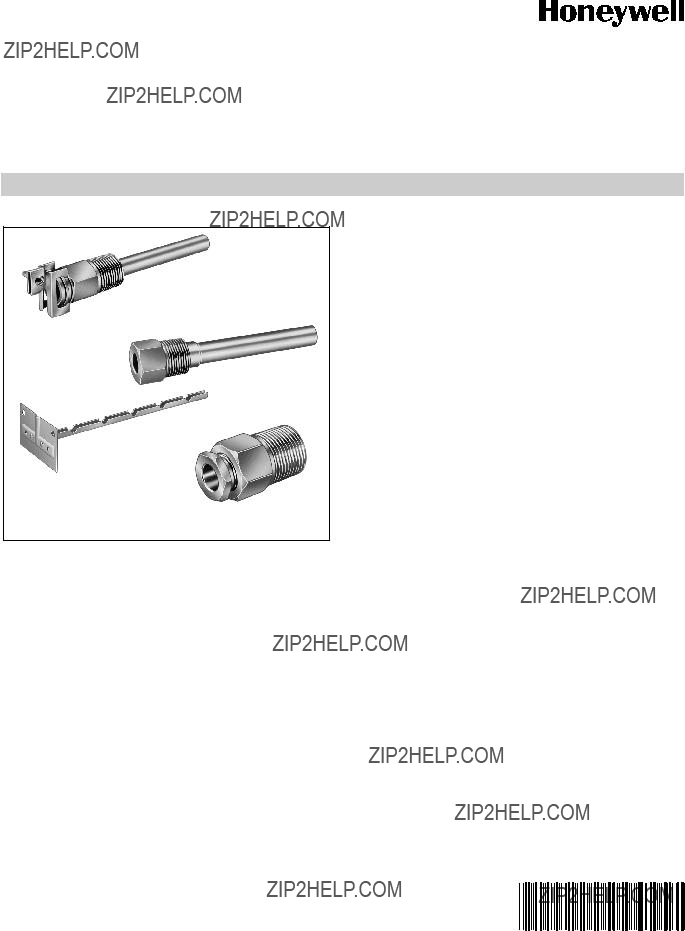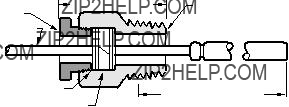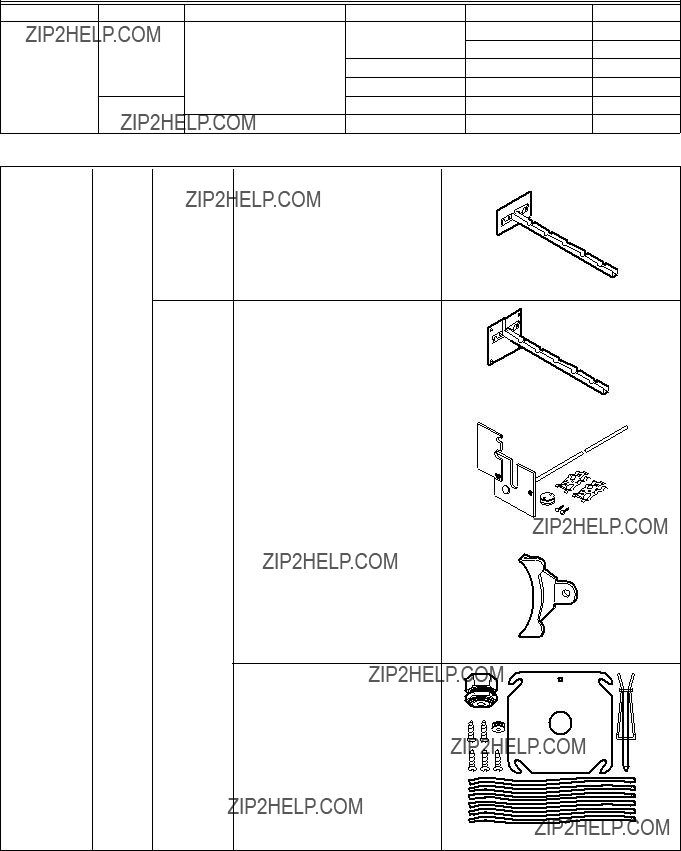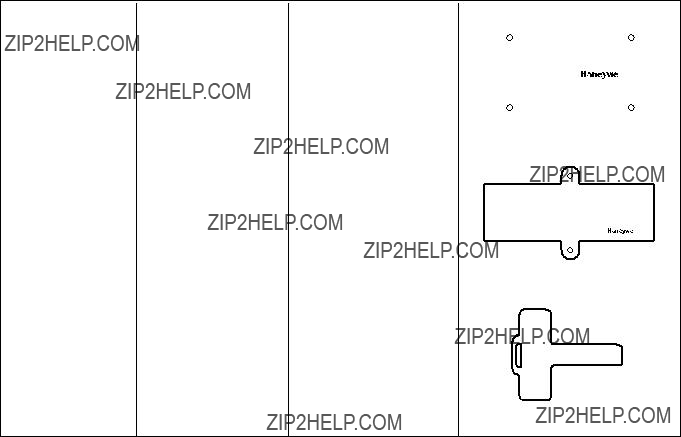 WARNING
WARNING
Electrical Shock Hazard or Equipment Damage Hazard.
Can cause sever injury, death or short equipment circuitry.
Disconnect all power supplies before installation.
Most equipment manufacturers provide a tapping for temperature controller sensing element insertion. The tapping should be located to measure average system temperature.
IMPORTANT
Always install the sensing element away from hot or cold water inlets, steam coils, and locations where the well pressure rating will be exceeded.
1.Turn off the power.
2.If the system is filled, drain it to a point below the boiler tapping or sensing element location.
3.If no tapping is provided, prepare one, properly threaded, at the desired location.
Immersion Well Mounting
Instructions for mounting the well in the tapping and using the capillary mounting clamp or spring clip in remote bulb applications follow. Consult the appropriate Aquastat?? Controller instructions for mounting the controller on the well in direct insertion applications. Direct insertion applications usually require using wells with a mounting flange on the spud.
1.Coat threads with a moderate amount of pipe dope, leav- ing two end threads bare. See Fig. 4.
NOTE: Teflon??? tape can also be used.
2.Screw the immersion well into the tapping and tighten securely.
APPLY A MODERATE AMOUNT
OF PIPE COMPOUND (LEAVE
TWO END THREADS BARE).
M17262
Fig. 4. Proper application of pipe dope.
Insert Sensing Bulb in Well
For good temperature response, the immersion well must fit the sensing element or bulb tightly and rest against the bottom of the well.
NOTE: If necessary, bend the tubing to hold the bulb against the bottom of the well.
IMPORTANT
Any bends made in the piping must be gradual to pre- vent breaks in the tubing and subsequent loss of fill.
For faster heat transfer, use heat-conductive compound to fill the space between the bulb and the well. A tube of heat-conductive compound ships with Honeywell TRADELINE?? Aquastat Controllers. The compound is also available as an accessory. See Table 5. Use the following procedure when installing the compound:
IMMERSION WELLS AND COMPRESSION FITTINGS
1.Fill the well with compound.
2.Coat the bulb generously before inserting it into the well.
3.Move the bulb up and down inside the well to ensure even distribution of compound.
Securing Bulb with Mounting Clamp
Use the 121371 Mounting Clamp only on wells with a mounting flange on the spud end.
1.Loosen the draw nut and spread the jaws of the clamp with a screwdriver. See Fig. 5.
2.Slide the clamp jaws over the spud mounting flange (point A in Fig. 5).
3.Adjust the tubing to fit through the mounting clamp groove (point B in Fig. 5).
IMPORTANT
When tightening the draw nut, be careful not to damage the capillary.
4.Tighten the draw nut so that the retainer clamp attaches firmly to the well spud and holds the tubing securely in place.
 JAWS
JAWS
SPREAD JAWS
TO FIT OVER
RIDGE ON
WELL SPUD
 SCREWDRIVER
SCREWDRIVER
MOUNTING CLAMP
A
Fig. 5. Fastening bulb in well using mounting clamp.
Securing Bulb with Spring Clip
The spring clip can be used with any well with the appropriately size spud. Wells without a mounting flange on the spud require a spring clip.
NOTE: The spring clip does not hold the capillary as securely as does the mounting clamp. See Table 5 for spring clip part numbers.
1.Slide the clip over the capillary with the prongs facing the well.
2.Push the clip as far as possible into the spud. See Fig. 6.
NOTE: Make sure the bulb remains bottomed in the well.










 WARNING
WARNING
 WARNING
WARNING JAWS
JAWS SCREWDRIVER
SCREWDRIVER

 SLOTTED WASHERS
SLOTTED WASHERS




 CAUTION
CAUTION
 CAPILLARY TUBE
CAPILLARY TUBE